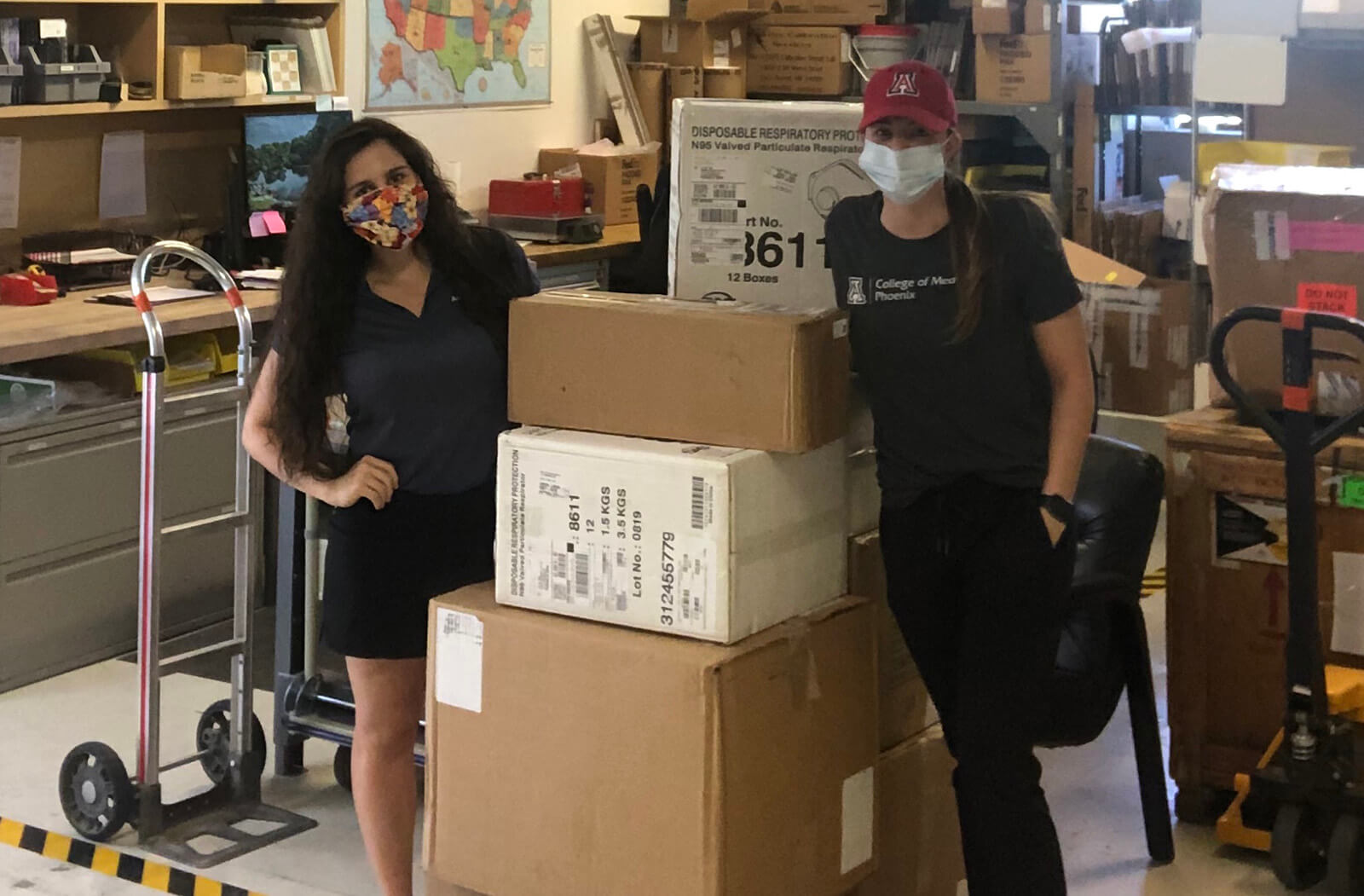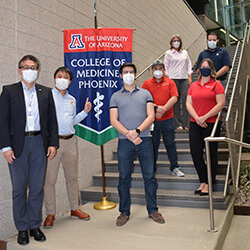
U of A College of Medicine – Phoenix Students Help Community During COVID-19 Pandemic

A group of University of Arizona College of Medicine – Phoenix students were inspired to provide aid to Arizona health systems, as well as to their patients, the workforce and communities facing the COVID-19 pandemic.
The program, called COVID-19 Student Service Corps, was started when fourth-year medical student, Tory Prynn, heard about a similar program at Columbia University and was inspired to bring the same program here. “As medical students, we all want to be out there helping, but due to social distancing, we can’t. With this program, we can still serve our communities, while staying at home.”
“These students essentially built this from the ground up,” said Stephanie Briney, DO, director of Service Learning and faculty chair of the COVID-19 Student Service Corps. “Armed with little information and the support of our institution, our students have worked together to identify specific community needs, scour available resources, develop their own community network and capitalize on the strengths of each individual to maximize the impact of their efforts.”

Dr. Briney said that students have been working tirelessly to promote these initiatives.
“I frequently receive emails and texts on the weekends and evenings as they continue to expand their efforts in ways that I would never have imagined, all while they are continuing to adjust to new class formats, uncertainty about exams and clinical experiences, and the many reaching impacts of the pandemic,” Dr. Briney said.
She added, that as a faculty member, she cannot think of a more gratifying way to work with students.
“They are pillars of professionalism, altruism and servant leadership, and I can’t possibly express how wonderful they are and how proud and impressed I am,” Dr. Briney said.
The program has 100 volunteers from the U of A College of Medicine – Phoenix, College of Medicine – Tucson, Mel and Enid Zuckerman College of Public Health and College of Pharmacy. However, the group is hoping to expand with volunteers from the other health professions programs in Arizona.
“We are really looking to our colleagues: the physician assistant students, occupational therapists, physical therapists and reaching out to other medical schools in the area to make this a collaborative effort,” said fourth-year medical student Nicole Segaline.
The program functions through material and resource donations, like PPE material, hygiene products and food items.
“We are a group of students trying to help our community in any way we can. A lot of populations are being hit very hard by the COVID-19 pandemic, and we have the opportunity to help them. If you have anything to donate, no matter how small or large, we would greatly appreciate it,” said Segaline.
To learn more about the program, or get involved, visit the COVID-19 Student Service Corps.
About the College
Founded in 2007, the University of Arizona College of Medicine – Phoenix inspires and trains exemplary physicians, scientists and leaders to advance its core missions in education, research, clinical care and service to communities across Arizona. The college’s strength lies in our collaborations and partnerships with clinical affiliates, community organizations and industry sponsors. With our primary affiliate, Banner Health, we are recognized as the premier academic medical center in Phoenix. As an anchor institution of the Phoenix Bioscience Core, the college is home to signature research programs in neurosciences, cardiopulmonary diseases, immunology, informatics and metabolism. These focus areas uniquely position us to drive biomedical research and bolster economic development in the region.
As an urban institution with strong roots in rural and tribal health, the college has graduated more than 1,000 physicians and matriculates 130 students each year. Greater than 60% of matriculating students are from Arizona and many continue training at our GME sponsored residency programs, ultimately pursuing local academic and community-based opportunities. While our traditional four-year program continues to thrive, we will launch our recently approved accelerated three-year medical student curriculum with exclusive focus on primary care. This program is designed to further enhance workforce retention needs across Arizona.
The college has embarked on our strategic plan for 2025 to 2030. Learn more.